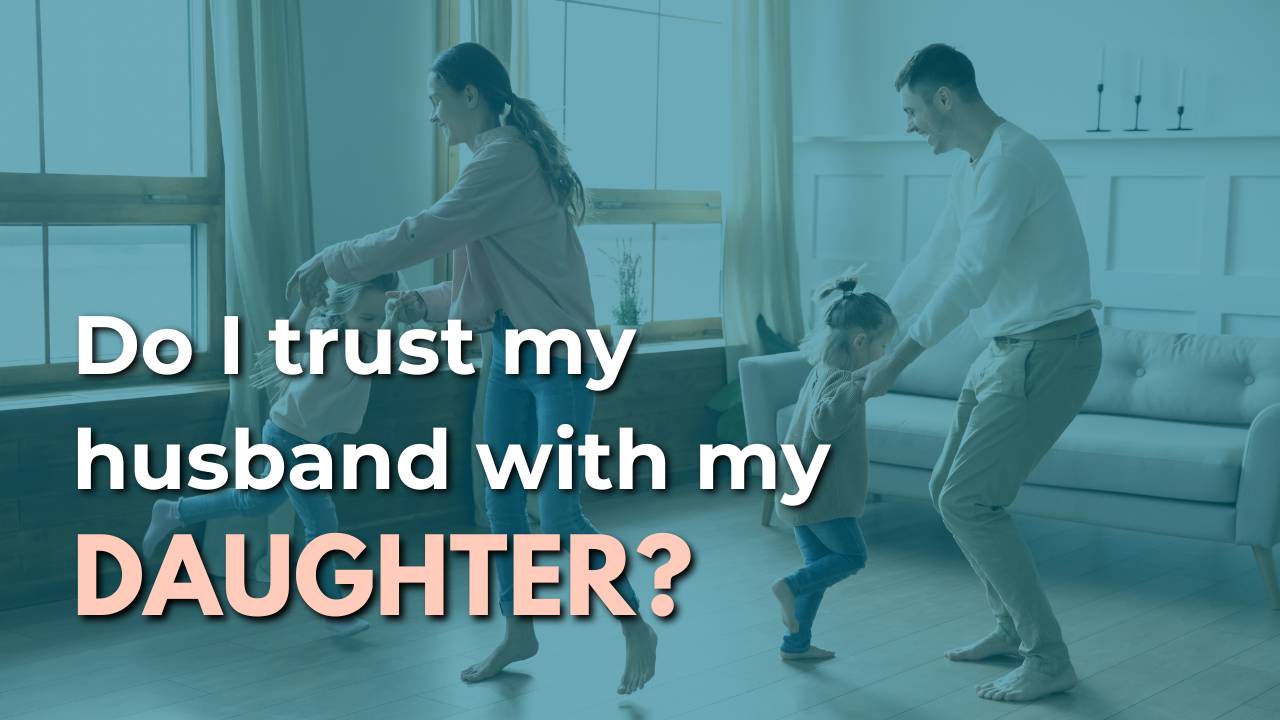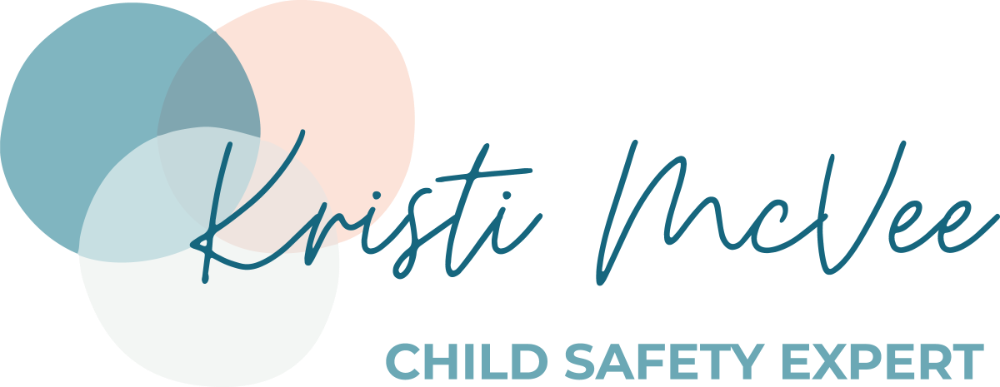"Do I trust my husband with my daughter?"
Jun 29, 2025
The Question No One Wants to Ask (But Every Parent Should)
Most parents assume the people they love are safe for their children. That family and friends means protection. That love equals trust. I wish that were always true.
But my years as a child abuse detective taught me something I could never unsee:
It’s not everyone. But it can be anyone.
Over 90% of child sexual abuse is committed by someone known to the child.
1 in 3 girls. 1 in 5 boys.
And a lot of the time? The abuser is family or a close family friend.
That reality shattered the comfort of assumptions. Because when I became a police officer and saw the reality, I had to look at the people around my daughter, including my husband and ask the unthinkable:
Do I trust him 100% with her?
Not because I saw any red flags. Not because I didn’t love him. Because I had to. Because she couldn’t do it for herself, and it was my job to see what she couldn’t.
Family does not automatically mean safety. Love doesn’t override risk. And “good bloke” doesn’t guarantee “safe adult.”
What I’ve Seen Changed Me Forever
In my detective work, I saw the ones who weren’t supposed to do it, the loving dads, the doting grandads, the fun uncles plus some mothers and grandmothers too. People who were adored and trusted. People who shattered children’s lives in silence.
That experience rewired how I saw everyone, even the people closest to me. I didn’t grant blind trust based on relationships anymore. Trust had to be earned through consistent, safe behaviour, not assumed by default.
And yes, it was uncomfortable. Looking at my husband through the lens of “could he ever hurt her?”
I felt ashamed. I worried it was unfair. I feared it would hurt him.
But none of that outweighed my responsibility. Because my child’s safety is not worth the price of anyone’s comfort, even his. Even mine.
What I Was Actually Looking For
The Red Flags and Safe Adult Behaviours Every Parent Needs to Know
When I say I assessed the people around her, I don’t mean interrogated. I mean watched. Observed. Listened. I noticed how they responded when I talked about body safety, how they treated her boundaries, and whether they respected the rules we’d set to keep her safe.
Here’s what I looked for and what I want every parent to look for too.
🚩 Red Flag Behaviours I Wouldn’t Ignore:
-
Forcing hugs, kisses, or any physical affection when she didn’t want it.
-
Dismissing her feelings or boundaries because she’s “just a kid.”
-
Forcing or participating in bathing/nudity when unnecessary or when she was uncomfortable.
-
Ignoring her personal space, making her sit on laps or be held without consent.
-
Giving gifts or treats for no reason, especially if I’d said no.
-
Asking her to keep secrets from me, even about small things like snacks or toys.
-
Using phrases like “children should be seen and not heard” to silence her.
-
Making inappropriate or dismissive comments about child sexual abuse (e.g. “it doesn’t happen that much,” “kids lie about it,” etc.)
-
Refusing to discuss body safety or ignoring boundaries we’d put in place.
-
Undermining my parenting decisions in front of her, or guilt-tripping her to pressure me.
How I Tested Trust
When I talked about body safety, I watched how adults responded. If someone shut down the conversation or said I was “being dramatic,” that was a red flag.
I’d ask questions casually, like:
“What would you do if she said she didn’t want to bathe with you?”
The only acceptable answer: “I’d respect her boundary immediately.” That’s not up for debate.
One real-life example? My husband used to sleep nude. My daughter once said it made her uncomfortable when she’d climb into bed in the mornings, so he started wearing underwear to bed immediately. No hesitation. No defensiveness. Just respect.
That’s what safe adults do. They don’t argue. They listen with respect and adapt.
❌ Behaviours That Made Someone Less Trustworthy:
-
Not listening when a child says no or sets a boundary.
-
Guilt-tripping or forcing physical affection.
-
Acting entitled to access or alone time because they’re family.
-
Using the child to manipulate the parent’s decisions.
-
Talking badly about the parent in front of the child.
-
Making the child responsible for keeping adult behaviours secret.
✅ Behaviours That Made Someone More Trustworthy:
-
Asking for consent and actually respecting the answer.
-
Stopping immediately when told to stop.
-
Explaining situations and offering choices when possible.
-
Listening to her voice, validating her emotions, and treating her autonomy with respect.
-
Being open to learning about child safety (even when it's uncomfortable) and a willingness to discuss how to be a safe adult and provide safe, protective care.
My Non-Negotiables:
-
No secrets. Ever. Not even “little ones.”
-
No touching without consent.
-
No undermining my parenting.
-
No pressuring or guilt-tripping for access or affection.
-
No manipulation.
Top 6 Red Flags I Saw All the Time in Real Cases:
-
Forcing or guilting kids into hugs, kisses, or closeness.
-
Mocking or dismissing child safety measures.
-
Insisting on alone time with the child and pushing for it.
-
Asking the child to keep secrets.
-
Giving forbidden gifts or “treats” to gain favour.
-
Ignoring parenting boundaries, especially involving other adults or locations.
- Finding ways to be isolated with the child (even in company of others) by going behind closed doors or in areas where the protective parent couldn't supervise the interaction.
If You’re Feeling Uncomfortable Right Now... Good.
That discomfort might be the thing that saves your child. If someone reacts poorly to boundaries, gets defensive when you bring up child safety, or brushes off your concerns?
They’re not safe.
They don’t have to be a predator to be a risk. Not taking this seriously and being dismissive can be just as damaging and detrimental to your child's safety. And your child doesn’t have to be the one who finds out the hard way.
Assessing risk doesn’t make you paranoid. It makes you prepared.
You don’t need to explain it.
You don’t need to apologise for it.
You don’t need to make other adults comfortable.
Your job is to protect your child, even when it’s awkward. Even when it’s painful. Even when it’s someone you love.
Because silence doesn’t keep kids safe. Boundaries do.
Kristi x
Don't forget that teaching body safety lessons is the No.1 protective and preventative tool against child sexual abuse. You can't be with them all the time but you can arm them with the tools to identify unsafe and inappropriate behaviours and know what to do if someone is acting inappropriately. Want to know how to teach body safety? Check out my Conversations with Kids Body Safety cards - www.cape-au.com/conversations-with-kids-body-safety
Also check out my blog on 'What makes someone a Safe Adult' here: https://www.cape-au.com/blog/what-makes-someone-a-safe-adult


